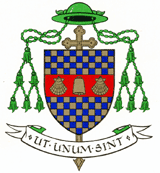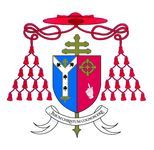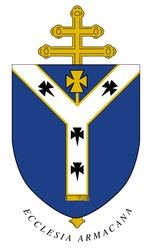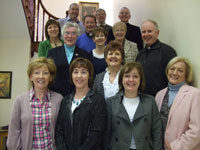MASS FOR THE DISAPPEARED
ST PATRICK’S GRAMMAR SCHOOL
HOMILY GIVEN BY
CARDINAL SEÁN BRADY
SUNDAY 28 MARCH 2010
In our little procession we remember that Jesus entered Jerusalem as a king yes – but as a different sort of king – a king riding on a donkey – surrounded by the poor and the powerless – who insisted that they must praise their king. The Pharisees wanted them to shut up but Jesus answered: “I tell you if these keep silent – the stones will cry out”. Blessings on the king who came in the name of the Lord – a king who washes the feet of his disciples – who gives his own body and blood and life – on a cross – a king who serves.
At the end of this week we will celebrate again the rising of our crucified king but only after he was betrayed and rejected and belittled and spat upon and nailed to a cross too. As we do so we unite our own sufferings with his suffering in our morning offertory
Christ, nailed to the cross, is the power of God and the wisdom
Christ nailed to the cross is the King of the Universe.
We take the these words of Jesus on the cross
Father forgive them for they know not what they are doing?
Jesus is thinking not of himself but of others – his executioners and he asks the Father for the one thing that was really important to them
FORGIVENSS
He had made it one of his Petitions and the great prayer to the Father.
Forgive us – our trespasses as we forgive those
As we forgive,
It is conditional – on our own forgiving – today for the strength to forgive those who have offended us that we, in turn, may be forgiven ourselves. Indeed, I promise you today, you will be with me in Paradise.
Today we think of all our beloved dead. We believe that they too are with Jesus in Paradise. We think of that wonderful promise, made to one of the criminals – hanging there with Jesus – confessed the wrong which he had done and begged Jesus simply to remember him when he comes into His kingdom. Jesus answered:
“Father, into your hands I commit my spirit”
And with these words he breathed his last.
We are all in the hands of God at every moment of our existence. We are in God’s loving care always. For those who love God, all things work together unto good.
Jesus looked out at the others. He was not thinking of himself. He bore no resentment. Only his example and his power can enable us to let go of our resentment.
Every Holy Week is a year nearer to the day of our committing our spirit to God – forever. Each new dawn is a day nearer to the day when we too shall breathe our last.
I think it is the sign of a mature person to face up to that certainty and to grace it with courage and confidence – confidence in the mercy and forgiveness. One of the great joys of a happy Easter is a good confession. That is not only a good preparation for a happy Easter; it is the one and only preparation for a happy death.
I am reminded today also of Pieta. The mother of Jesus stood by the cross. When all the others had abandoned her son, she was there to the end and the lovely statue of Michelangelo depicts Mary receiving the dead body of her son to prepare it for the honours of a proper and dignified burial.
Today we pray that the remains of the disappeared, who have not been found – that they too may be given the honour and ceremony of a Christian burial – and that you may have grace to visit and a place at which you can bring flowers as a sign of your love and affection for your loved ones so cruelly taken from you.






